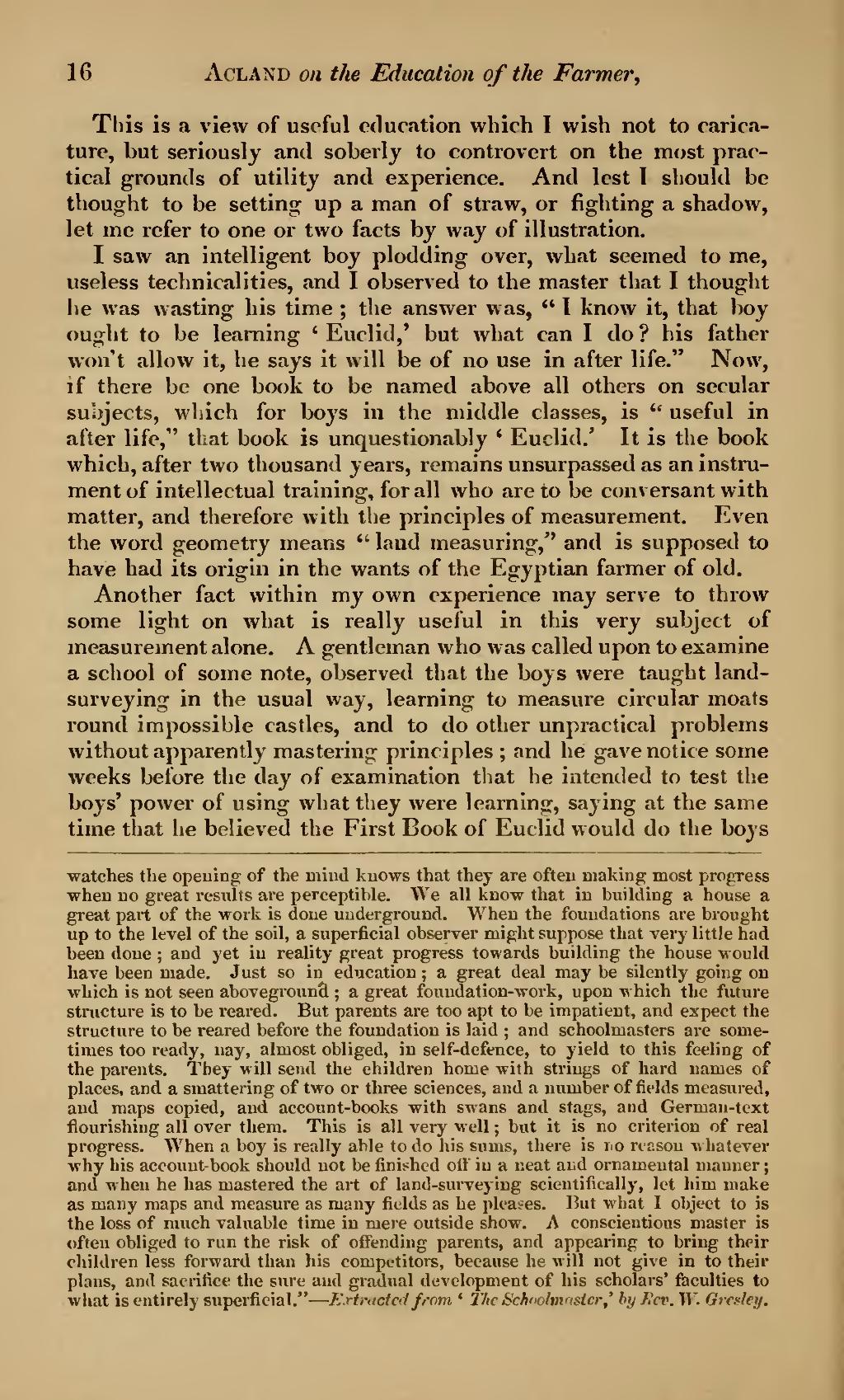This is a view of useful education which I wish not to caricature, but seriously and soberly to controvert on the most practical grounds of utility and experience. And lest I should be thought to be setting up a man of straw, or fighting a shadow, let me refer to one or two facts by way of illustration.
I saw an intelligent boy plodding over, what seemed to me, useless technicalities, and I observed to the master that I thought he was wasting his time; the answer was, "I know it, that boy ought to be learning 'Euclid,' but what can I do? his father won't allow it, he says it will be of no use in after life." Now, if there be one book to be named above all others on secular subjects, which for boys in the middle classes, is "useful in after life," that book is unquestionably 'Euclid.' It is the book which, after two thousand years, remains unsurpassed as an instrument of intellectual training, for all who are to be conversant with matter, and therefore with the principles of measurement. Even the word geometry means "land measuring," and is supposed to have had its origin in the wants of the Egyptian farmer of old.
Another fact within my own experience may serve to throw some light on what is really useful in this very subject of measurement alone. A gentleman who was called upon to examine a school of some note, observed that the boys were taught land-surveying in the usual way, learning to measure circular moats round impossible castles, and to do other unpractical problems without apparently mastering principles; and he gave notice some weeks before the day of examination that he intended to test the boys' power of using what they were learning, saying at the same time that he believed the First Book of Euclid would do the boys
watches the opening of the mind knows that they are often making most progress when no great results are perceptible. We all know that in building a house a great part of the work is done underground. When the foundations are brought up to the level of the soil, a superficial observer might suppose that very little had been done; and yet in reality great progress towards building the house would have been made. Just so in education; a great deal may be silently going on which is not seen aboveground; a great foundation-work, upon which the future structure is to be reared. But parents are too apt to be impatient, and expect the structure to be reared before the foundation is laid; and schoolmasters are sometimes too ready, nay, almost obliged, in self-defence, to yield to this feeling of the parents. They will send the children home with strings of hard names of places, and a smattering of two or three sciences, and a number of fields measured, and maps copied, and account-books with swans and stags, and German-text flourishing all over them. This is all very well; but it is no criterion of real progress. When a boy is really able to do his sums, there is no reason whatever why his account-book should not be finished off in a neat and ornamental manner; and when he has mastered the art of land-surveying scientifically, let him make as many maps and measure as many fields as he pleases. But what I object to is the loss of much valuable time in mere outside show. A conscientious master is often obliged to run the risk of offending parents, and appearing to bring their children less forward than his competitors, because he will not give in to their plans, and sacrifice the sure and gradual development of his scholars' faculties to what is entirely superficial."—Extracted from 'The Schoolmaster,' by Rev. W. Gresley.
